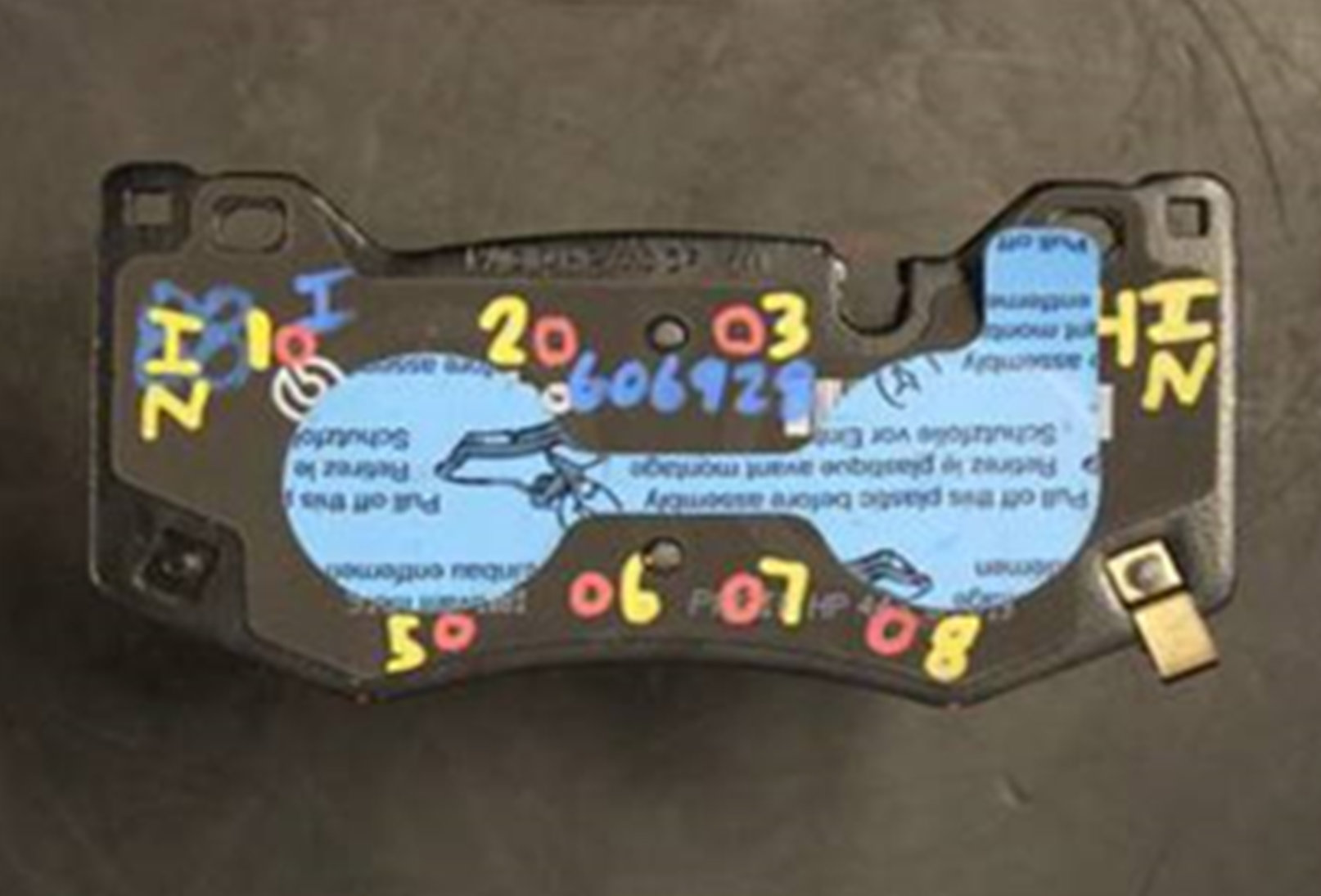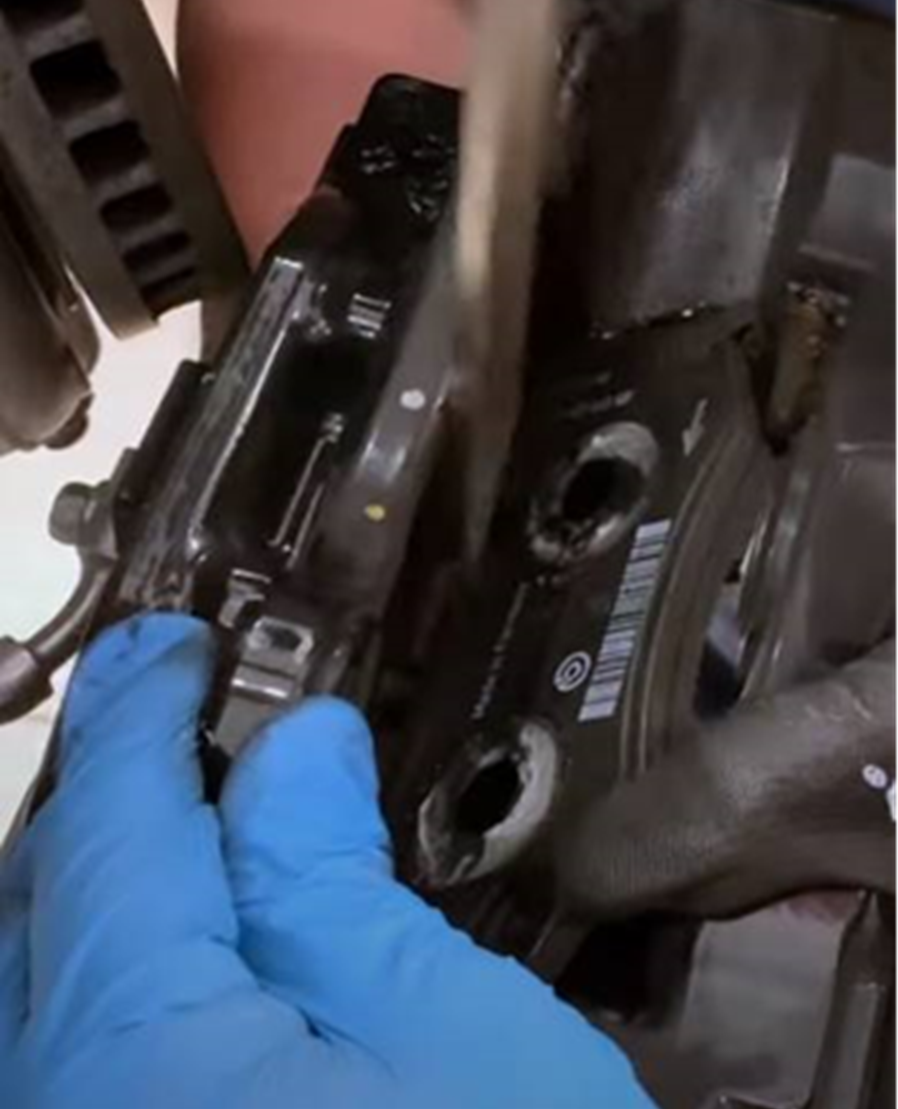Correction
When a dealership takes a vehicle in with a braking concern, it is important that they first understand the customer’s concern and under what conditions this concern is present. In the vast majority of cases that come into the GM Technical Assistance Center (TAC) on this vehicle, there are very few cases that actually require a new part or a new component in order to resolve the customer’s issue. In most cases, it is a customer education issue and nothing is wrong with the actual vehicle itself.
This PIC will address the most common brake noise complaint that comes into TAC and list the correct steps to go about resolving it in an efficient manner.
Most brake squeal cases on this vehicle come in with a complaint during normal, city driving. Usually the customer states that the squeal noise can be heard intermittently, but when it does happen, it is usually at very low speeds, usually 5mph or slower, right before the vehicle actually comes to a complete stop. Finding out on which side, or which corner of the vehicle the noise is actually coming from is a very important step in the service drive and one that is often overlooked.
The first thing that to ask about is if the customer has experienced a constant squeal noise, even when the brake pedal is not being applied. This could indicate that a pebble or small stone has lodged itself in between the rotor and one of the brake pads. Assuming that is not the issue, we will dive into the brakes themselves.
If a technician has a smart phone, he or she can download anyone of the many available "Sound Analyzer" apps that are widely available. This will allow the servicing dealer to record a short audio/video clip of the squeal noise, play the recording into this app, and it will show the user at what frequency this noise is occurring at. The most common frequencies of brake squeals on this car are found in the 2,000 - 4,000 hertz range. For this reason, a copper paste is applied to the brake pad abutments when the car is assembled. This paste helps to reduce the brake noise in this exact frequency range. Bulletin 17-NA-040 has been updated to include the C8 Corvette for this very reason. This bulletin describes in detail how to reapply this paste. If a customer power washes his / her wheels, or takes the vehicle through a "no-touch" car wash, it is possible that this paste has been washed off and it is no longer present. This will require a reapplication of the copper paste to the vehicle’s brakes. Brake squeal noises above 4,000 hertz, or 4kHz, will typically not be affected by the application of this paste. Noises in that frequency range are typically considered normal for a braking system of this nature.
If the customer describes a brake noise coming from the vehicle, perform bulletin 17-NA-040 as described. When removing the front brake pads on a Z51-equipped vehicle, the servicing technician should notice that there is a piece of double-sided tape that secures the front brake pads firmly to the caliper pistons. See the photo below as an example. The blue area is this peel-and-stick double sided tape.
To apply the paste correctly, the pads must be removed from the calipers. See the photo below for an example of what the front brake pads look like once they have been separated from the caliper pistons.
This is normal when the front pads have been removed. When this has been done, remove as much of the remaining tape residue as possible. Then, apply the copper paste as directed in the bulletin. Once the copper paste has been applied correctly to the front brake pads, simply reinstall them into the calipers. There is no need to replace the front brake pads during this service because of the double-sided tape.
Important: At this point in reassembly, many technicians have a tendency to want to chamfer the edges of the brake pads slightly, in the hopes that this will eliminate or prevent future noises from occurring. This is not something that should be done, despite any direction to the contrary. "Taking the edge off" or chamfering the brake pads will not provide any noise benefit to the customer and it may actually create other issues with the brake system.
When the service procedure has been completed exactly as written, determine if the same noise that the customer complained about is still present. If the noise is gone, or unable to be duplicated at that time, the vehicle is working as designed and the noise is most likely a product of the manner in which the car is being driven.
Explain to the customer that these are performance brakes and have a high metallic content brake pad. When used in a street setting, they will have a tendency to make some noise. If the customer is using the vehicle just to drive around town, run errands, etc, then the brakes are never getting up to "operating temperature". The brakes never have a chance to "warm up" when the vehicle is driven in this manner, and some noise is to be expected. If the customer continues to drive in this type of manner, the noise will likely be gone for several days, but it will almost certainly return. This does NOT mean that there is a concern with the brakes on this vehicle.

